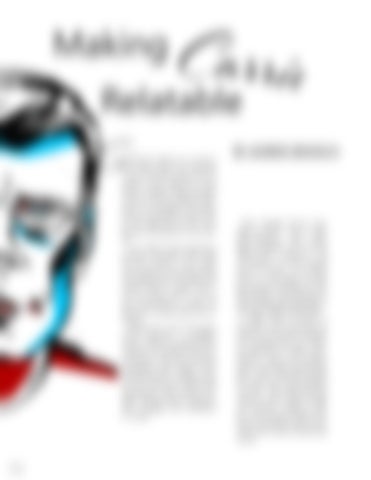Making
Carrie
Relatable
S
omething I admire as a writer is how some writers are naturally in tune with their stories. For example, in the well-known novel Carrie, Stephen King manages to focus on Carrie White's character arc throughout the book. Carrie’s classmates torment her at the beginning of the story because she gets her first period. I can relate to this experience because I remember when I had my first period. I was twelve and could not understand what was happening in my body. My mother had to explain that I was not dying, but it was my way of becoming a woman. To be honest, using a pad was horrifying. Toward the end of the book, Carrie becomes a confident woman before the Black Prom massacre. I empathize with Carrie because I was shy and quiet throughout high school. I have slowly become a confident person, but sometimes I find myself reverting to a shy and less confident Amber. Even at 36 years old, I struggle with confidence in myself.
156
BY AMBER BRANCH
Even though Carrie manages to find a way to gain self-confidence, that confidence somehow turns into the “Black Prom” massacre. I do not believe was the original intent of King. In the book, Carrie is overweight, and she has pimples everywhere. In the film, however, she looks beautiful by Hollywood standards, or she looks slightly disheveled. I relate more to Carrie in the book version. Growing up, I did not see myself as beautiful. I would always try to “hide” my blemishes or slight imperfections. I have my moments where I had body dysmorphia. Even after losing 65 pounds five years ago, I still thought I was “fat.” I was listening to the negative voices. Today, people use cosmetic surgery or Botox. To be honest, Hollywood’s beauty standards paint a narrative that women should look young.
